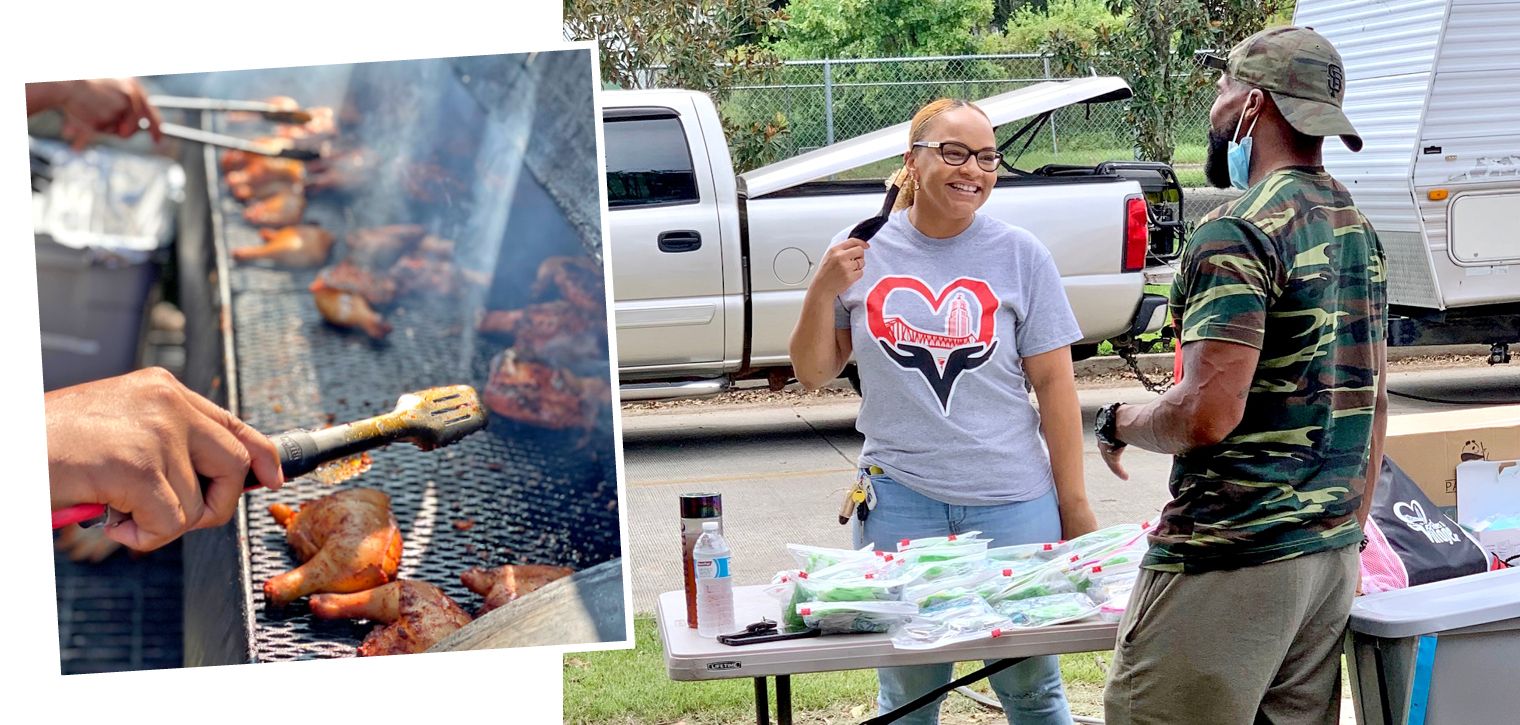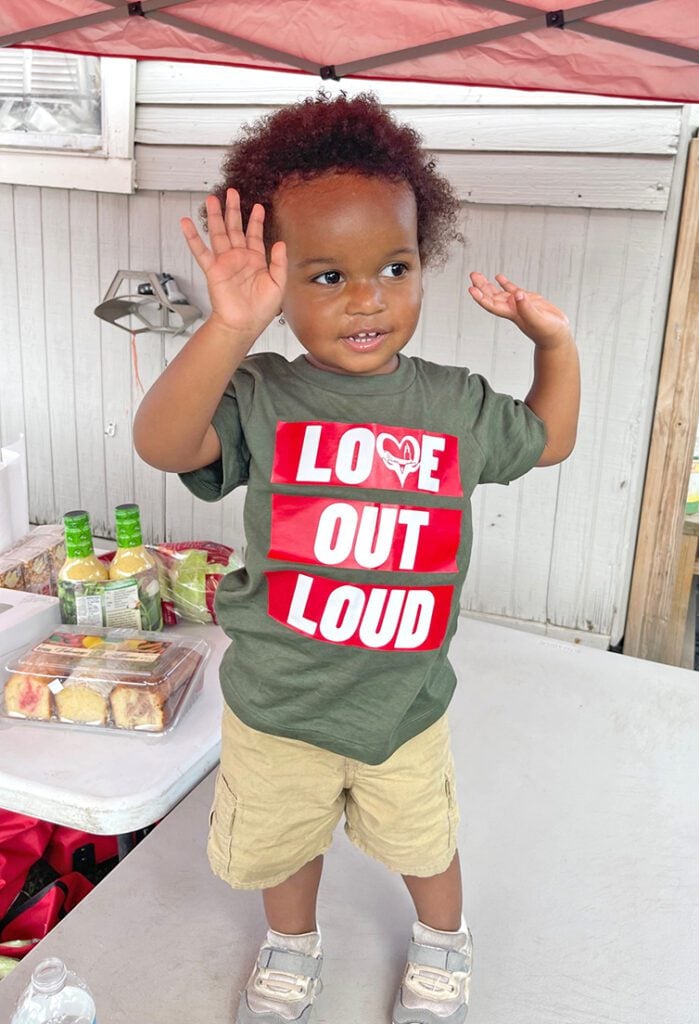
Giving Back: It Takes a Village BR
You wouldn’t expect it to be here, across the street from the North Boulevard Overpass. But you stop and listen. You hear the laughter, the conversation. You smell the scents of sautéed onion, sausage and vegetables. By the time you reach the pair of small, rented houses, you can see the source of all the excitement: a group of volunteers striding between folding tables and chairs, passing out boxes of homemade meals prepped right there in pots and pans swishing over propane-heated burners. Maybe someone else is handing out clothing, or doing someone’s nails, or administering a medical test. Another sports a T-shirt bearing the slogan “Love Out Loud”—the name of these weekly get-togethers—and that’s how you remember: it’s Sunday morning in Baton Rouge, and It Takes a Village BR is ready to serve.
Founded in 2015 by Skyye Guy and Kirk Boutte, It Takes a Village BR began under the overpass itself, serving homeless and at-risk members of the Baton Rouge community through food and fellowship. And though the safety precautions required in the age of COVID-19 have reduced the number of volunteers and attendees since 2020, the organization just celebrated its sixth anniversary last month, working just as hard as when Guy, Boutte and other board members served more than 200 people each week.
Perhaps the most visible of these board members is executive director Tiffany Simpson, who has been with the organization since its early days. “I used to have these dreams of being a forensic psychologist,” says Simpson, who holds a PhD in psychology and works as director of legislative affairs for the Louisiana Public Defender Board. “When I was in grad school, I was a testing assistant for a psychologist in juvenile court in Jefferson Parish, but I didn’t get to spend time with the kids and find out what their real issues and problems are. So then I started working as director of the Children’s Cabinet in the governor’s office, but felt like I wasn’t being hands-on enough.”
After her father passed away in 2015 and she no longer spent time as his caregiver, Simpson still felt the need to take on that role in some shape or form. The answer arrived via Instagram, where she had been following Boutte and his posts about his new charitable enterprise.

“It Takes a Village has always been open to people stopping in, so I showed up one day to see what it was about, and it just spoke to me,” says Simpson. “I love the grassroots nature of it. I love that people can just come out whenever they have time in their schedule. I love that people can bring their own ideas and make what they want of what they can offer.”
From tacos to pork tenderloin to a crowd-pleasing red beans and rice, the fresh ingredients gathered each Saturday to prepare the Sunday meals on site rely almost every week on the work of a dedicated cook, Thomas Davis, who used It Takes a Village BR’s services himself before becoming a volunteer.
“Unless someone else has donated meals for a particular day, everything people eat on Sunday comes from me, from scratch,” says Davis. “I don’t like using ingredients that have already been chopped up or frozen—everything is fresh.”
And you can forget the traditional beige contents of a standard bagged lunch.
“You won’t find things like hot dogs here, because hot dogs aren’t a meal to me,” says Davis. “I want to cook things that you would be happy to cook in your own home.”
When the area beneath the overpass—where many homeless Baton Rougeans once turned to for shelter—was blocked off three years ago, It Takes a Village BR also stepped in to help find permanent housing, care and other benefits for those people. That sense of community is just one of the key components of the in-person gatherings outside the North Boulevard houses, which Simpson purchased with ongoing plans for renovation.
“There are people we serve who have cycled through various phases of unemployment, and there are people we’ve been serving the entire time we’ve set up here. We know them,” says Simpson, who recalls a time when her simple offer to drive a community member to the hospital resulted in a crucial cancer diagnosis and a route toward treatment. “At the very least, we’re creating a space where these people can come in for a good meal, not be judged, and where they can talk to people and share their stories. Those things can definitely have a positive effect on a person.”











